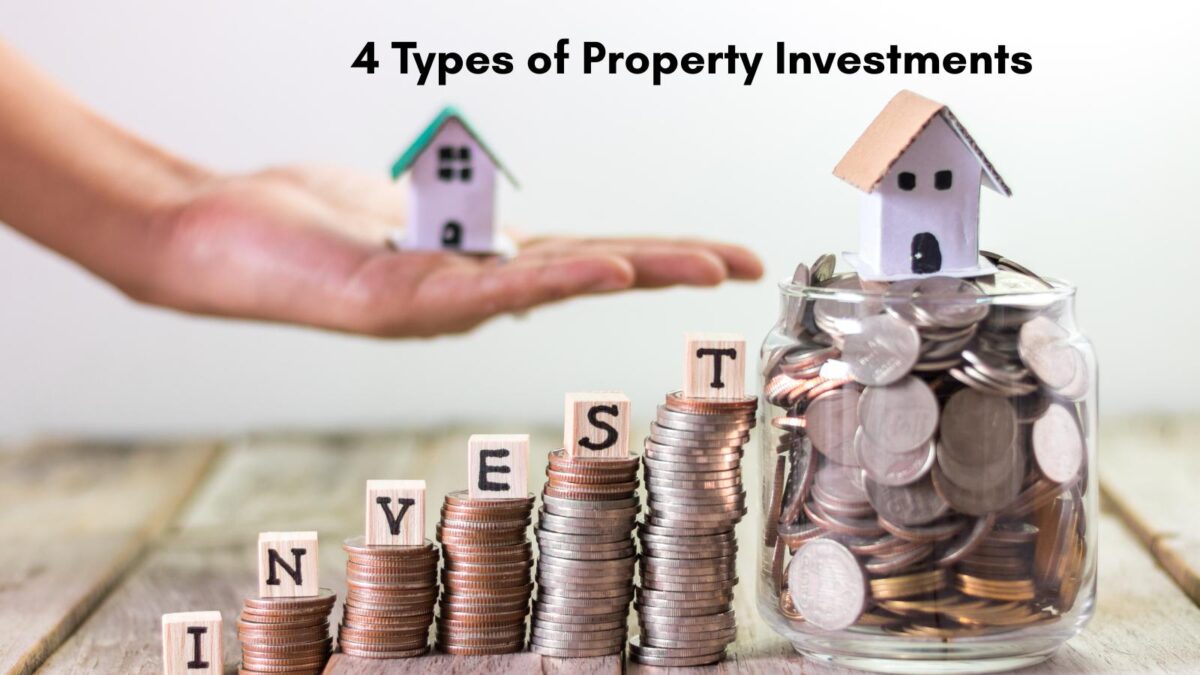Thinking about putting your money into different types of property investments, but not sure where to start? Real estate presents significant opportunities and substantial risks for small business owners.
From rental homes to commercial spaces, each type of investment has its rewards and challenges. Here’s a quick look at the four main property investment options—and what you need to watch out for.
Property investing isn’t just for big players—it’s something small business owners can use to gain more financial freedom. But before you jump in, it’s smart to know how each type of property can impact your money and time.
This guide covers the four top types of property investment choices, giving you the gems and the pitfalls for each one. Get ready to weigh your options and make more brilliant moves.
Discover the four main types of property investment as well as their main benefits and disadvantages in the post below.
Table of Contents
Residential lets
The first type of property investment to consider is residential buy-to-let. This type of property investment offers dual returns.
The first is the rental income you will gain from leasing it to tenants, and the second is any appreciation in the property’s value when you come to sell. You can use a tenant screening report to make sure you don’t waste time when bringing the wrong person in.
The main benefits of residential buy-to-let properties include that there is nearly always a market for these types of family homes. Additionally, in the current market, the amount you can charge per month for a residential buy-to-let property is on the rise, which makes this type of property investment promising in terms of ROI.
Lastly, it’s relatively easy to get a by two let more gauge, which will help you cover the cost of a residential property investment, making it a more accessible option than some of the others discussed below.
Of course, no type of property investment comes without downsides, and some of the ones you need to consider for residential buy-to-let properties include the increasing interest rate on buy-to-let mortgages, which means that while you may be able to charge more to your tenants, you will be charged more by your mortgage provider.
Additionally, residential buy-to-let property investments are a longer-term investment, which makes them unsuitable for those seeking a shorter return on their investment.
Holiday lets: Types of Property Investments
Another type of property investment to consider is the holiday let. This is when you buy a property in a popular tourist or vacation location, and rent it out in short blocks over the holiday season.
Like the other two kinds of property rental mentioned here, the main returns include rental fees and profits from eventual sale. However, because holiday lets are most in demand during peak vacation times, you may find occupancy to be less than full during the rest of the year.
This may not be a significant problem if you can charge enough to cover your costs and make a profit during peak holiday times. It can be a great way to invest in real estate.
Additionally, selling a holiday let is usually relatively easy as properties in popular vacation spots tend to retain their value, if not increase, over time. Oh, and there are often many better tax breaks for those earning from holiday let property investments and the other types mentioned in this post.
One of the significant disadvantages of holiday lets as a type of property investment is that they require thorough cleaning and maintenance for each new set of guests. This can be incredibly problematic and time-consuming for owners to do themselves, especially if you don’t live near the property in question.

The good news is that many providers, such as this Airbnb management service, can handle the management side for you. Indeed, they’ll not only clean, manage, and turn over your property for your next guests but also Screen guests and lists and market your property in the right places too.
This means you can maximize the return on your holiday let while minimizing the hassle associated with managing it.
Student lets Investment Property
Very similar to residential buy-to-let investment properties, student buy-to-let investment properties have one significant difference. The difference is that instead of renting to families and couples, those owning this type of property intend to rent each separate room out to individual students.
Concerning returns, they are very similar to residential buy-to-let properties, with both rental income and capital appreciation. However, owners can expect to command a higher price per property overall, due to the multiple tenants.
There are, however, some downsides to consider. The most important of which is that students are not well known for taking the best care of the property.
This could result in significant repairs and maintenance costs, which would need to be covered out of your profits. Additionally, students often only require accommodation during term time, which could present problems such as empty properties being vulnerable to break-ins during holidays.
Commercial property lets
Again, the two main types of return for commercial property investments include rental income from leasing the property and profit from any additional value accumulated during your ownership.
There are also some significant benefits to consider when it comes to commercial property investment, such as the ability to charge higher rental rates in a commercial setting compared to a residential one.
Additionally, unlike all the other types of property investments discussed in this post, it is usually the responsibility of those leasing commercial property to maintain it. This means that you will have significantly lower expenses to deal with, and therefore, you can expect a higher percentage of the profit to be in your pocket.
Conclusion: Picking The Right Types of Property Investments For You
Choose the right types of real estate investments that fit your goals, budget, and risk level. Consider how much time and effort you are willing to invest.
Some types of property investments need hands-on work, while others offer more passive income. Study local markets and consider your long-term plans before making a purchase. Solid research and honest self-assessment give you a better shot at steady growth.
If you still feel unsure, talk with a financial advisor. Finding the right fit sets you up for better results and less stress as your business grows.




